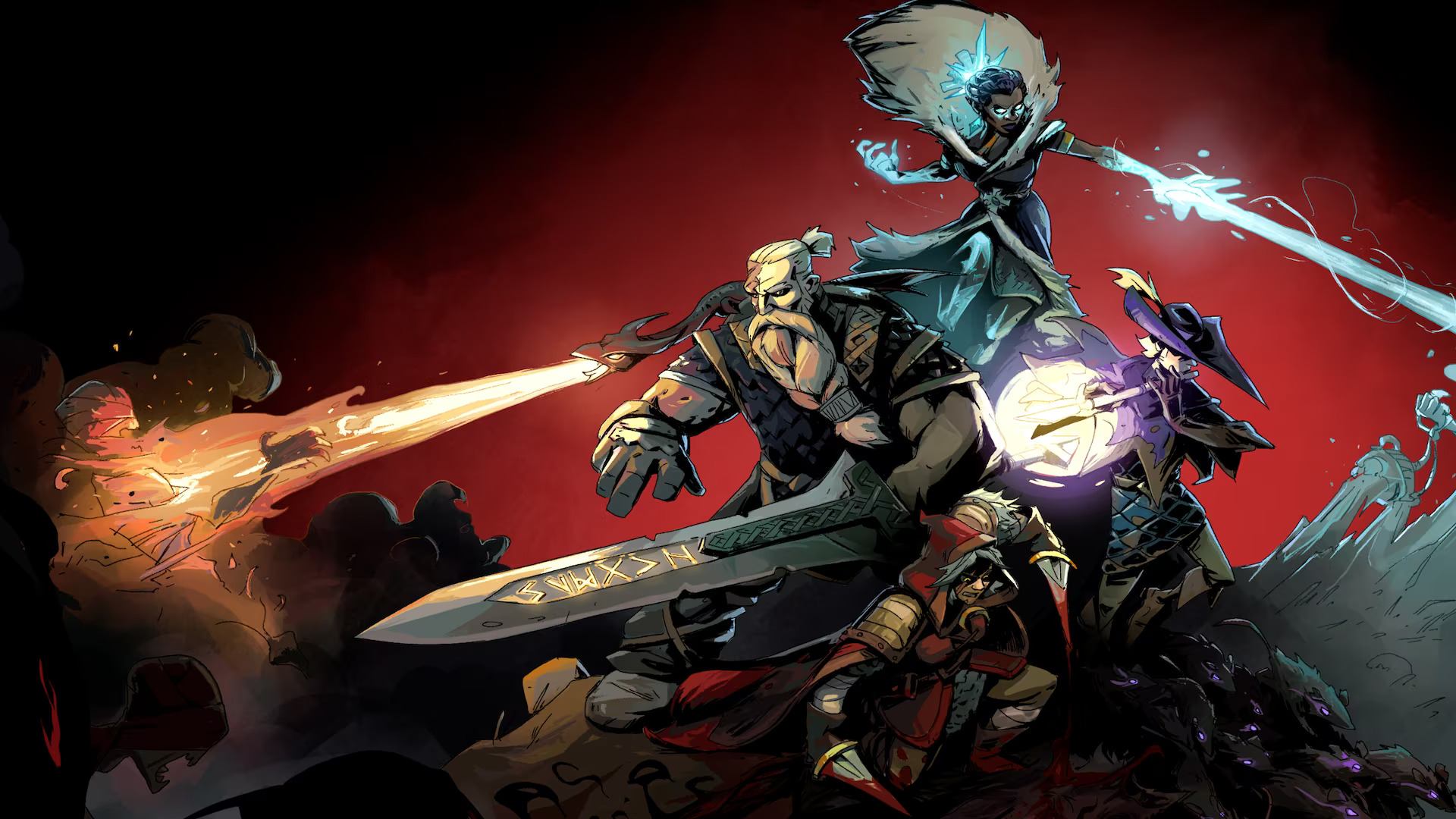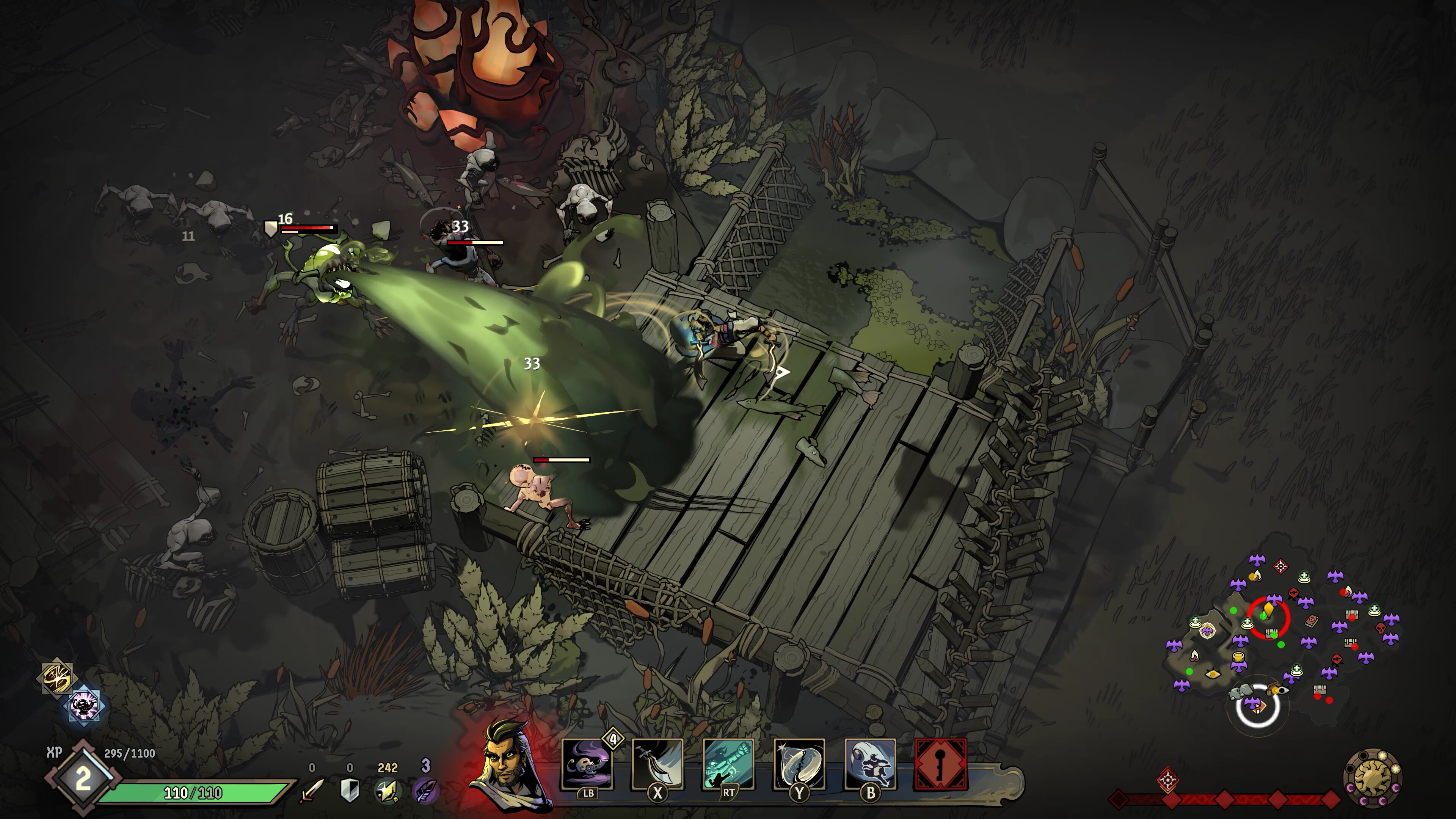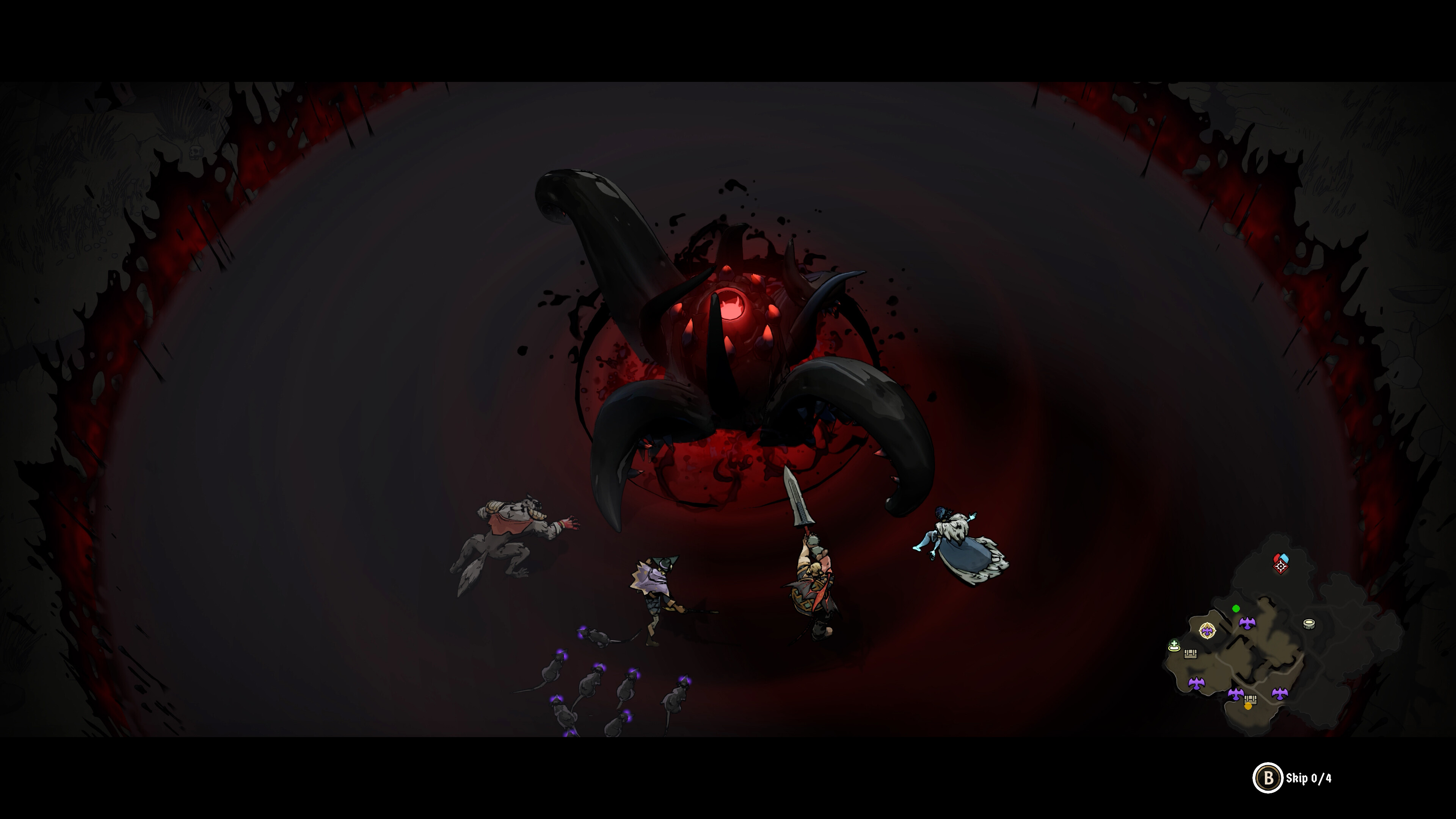
What if Little Red Riding Hood and the Big Bad Wolf were the same person? Well, it would render the original fairy tale pretty confusing—but it makes for a very cool action-RPG character.
In Ravenswatch, all the playable heroes are reimaginings of classic characters from fairy tales and literature—from the sly Pied Piper who wields musical magic and summons swarms of rats, to the hulking Beowulf who carries the diminutive last dragon whelp on his shoulder, to, yes, Little Red Riding Hood as a deadly rogue and werewolf.

Once you've picked one of these familiar figures, you head out on an adventure—of which there's currently only one available, a bleak rural landscape swarming with ghouls, ghosts, and mutated pigs. You're given four brief days and nights, amounting to 24 minutes real-time, to explore the map, level up, find treasures, and otherwise prepare yourself. Once the time runs out, you're thrown into a battle with the final boss—in this case, an enormous Lovecraftian horror ready to smash you to bits with its squirming tentacles. Structurally it's like playing Diablo on fast-forward, the whole experience of adventuring and building a character for the endgame squashed down into one half-hour sprint.
That doesn't mean combat is about rapid-fire clicking, though. Developed by the team behind roguelike gem Curse of the Dead Gods, Ravenswatch invests its fights with similar weight and impact. It's not frantic, it's decisive—most enemies go down with a few well-placed strikes, but your hero is even more easily felled. It makes clever use of your abilities—and particularly your dodge roll—vital for survival.
The rhythm of switching between the two playstyles at regular intervals is thrilling.
Little Red Riding Hood is a classic rogue—she boasts a dash that slices enemies it passes through, an explosive trap, and the ability to slip into stealth for quick ambushes. But what's really clever about her design is that when night comes—as it does every four minutes—the wolf takes over. Under the moonlight, she switches to her werewolf form, and gains a whole new set of abilities that turn her from a sneaky assassin to a hefty bruiser.
The rhythm of switching between the two playstyles at regular intervals is thrilling, giving a genre that can suffer from repetitiveness a lovely splash of built-in variety. Cleverly, though the wolf feels very different, its abilities follow the same themes as Hood's human ones—the dash to safety becomes a pounce into the middle of the crowd, the explosive trap for punishing chasing foes becomes a ground pound for smashing everyone directly around you, and instead of slipping into the shadows to recover, you empower your attacks with a life-stealing buff so you can heal up in the thick of things.

Each character has their own similarly distinctive twists—from Aladdin strategically deploying his three wishes throughout each adventure, to the Pied Piper dancing around enemies to make them vulnerable for his rats. It certainly makes for a much more striking roster than your usual warriors, wizards, and paladins, especially in co-op where each player can really commit to their gimmick and role.
The game is launching in Early Access on April 6, with the developer keen to get plenty of user feedback ahead of the full release.
The thing that's hard to get a sense of in the game's current build is what the longevity of the final release will be like. I've had fun running through the one existing zone with different characters to get a sense of each, and the randomly generated map helps it feel a little different each time, but I wouldn't describe it as super replayable. My understanding is the plan for the final release is for there to be a total of three such zones—I'm not sure that's going to make for a substantial enough experience to make the most of these clever character designs.
At least the community is going to get a big hand in answering questions like these—the game is launching in Early Access on April 6, with the developer keen to get plenty of user feedback ahead of the full release, planned for one year from then. I'll be following it with interest—while the scope of Ravenswatch may currently be modest, it's bursting with a creative flair that's really refreshing for the genre.







